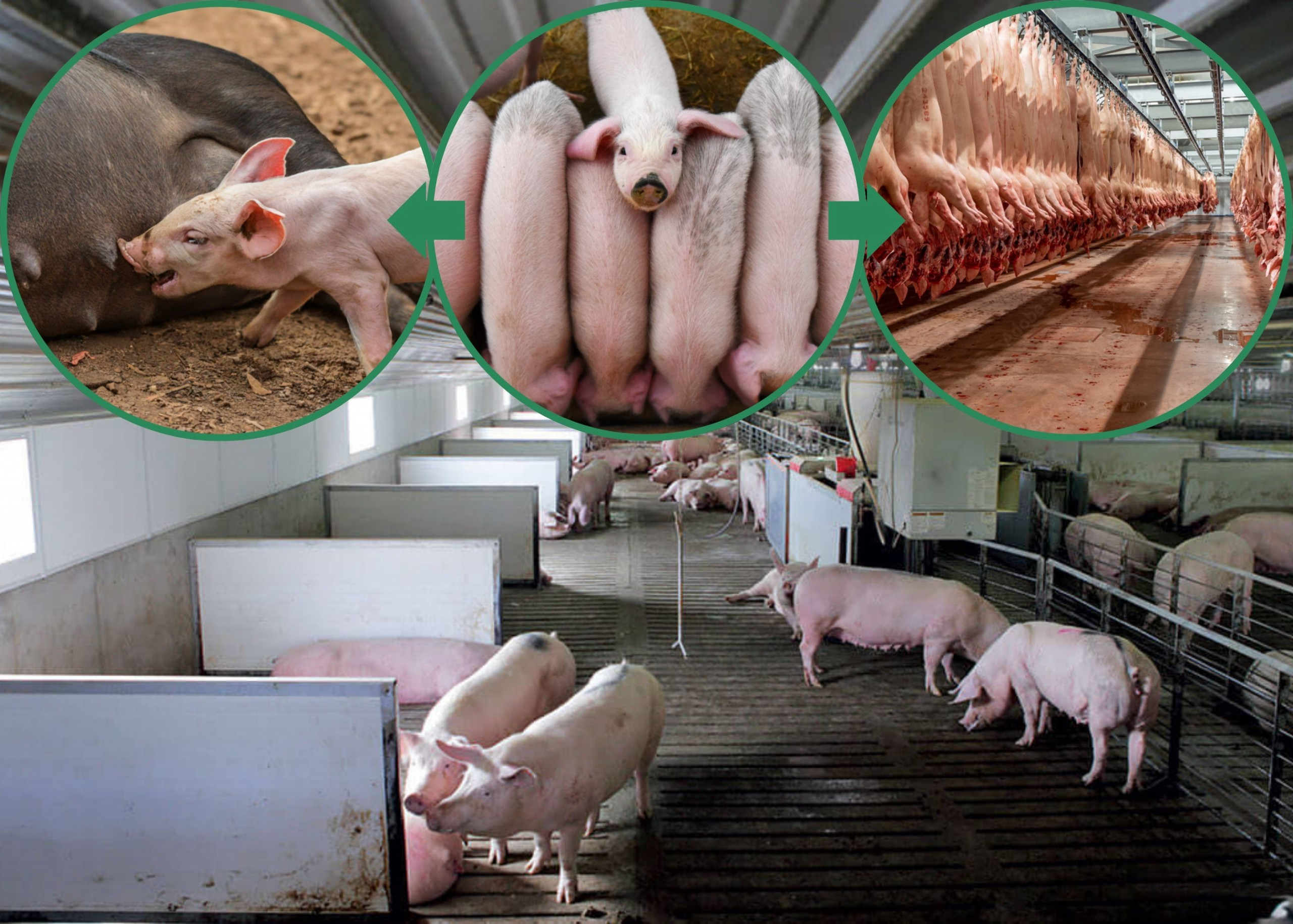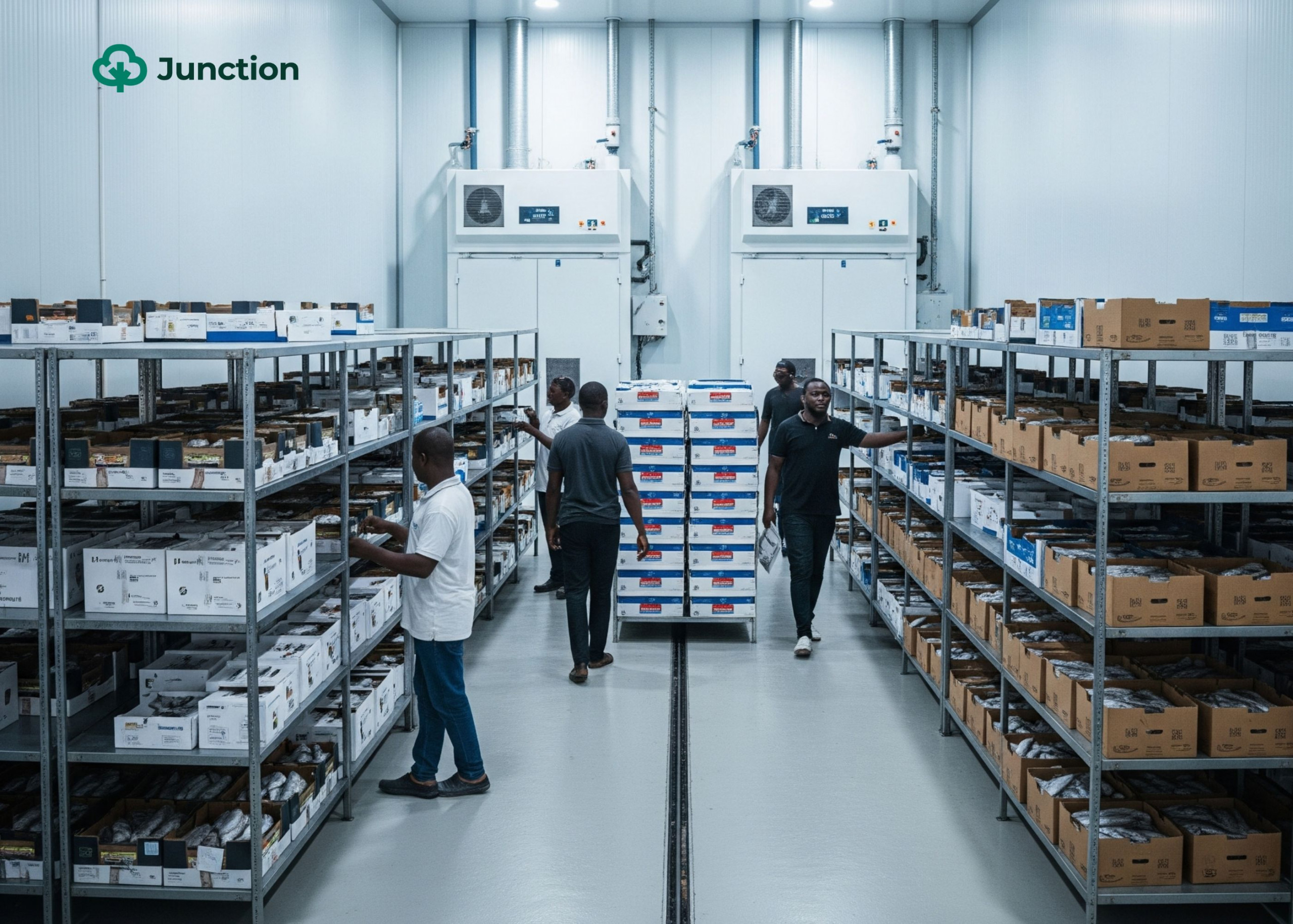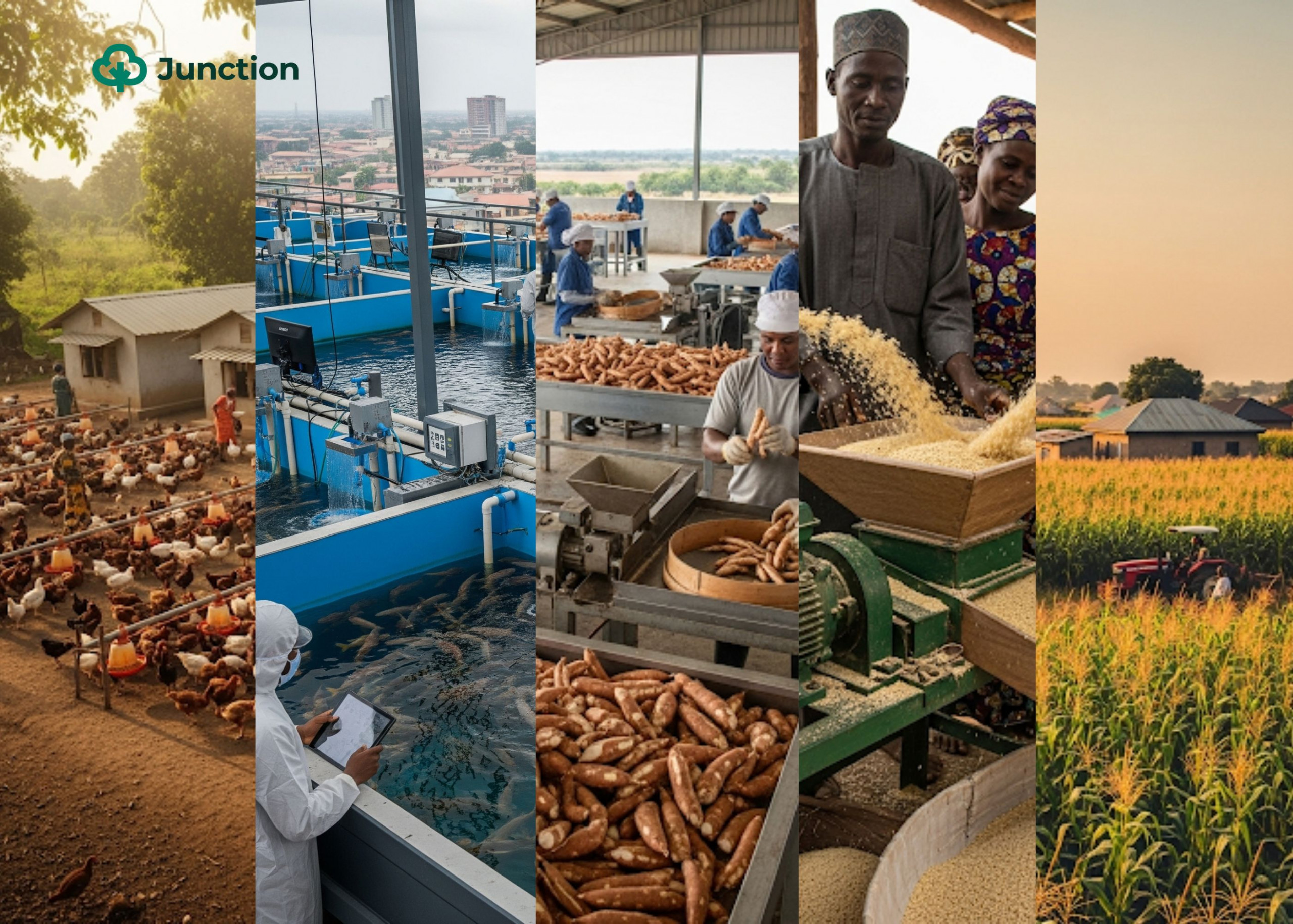In Nigeria, pigs are mainly raised for meat, known as pork. The domestic market is booming even though a large portion of Nigerians (mostly Muslims) do not eat it due to their religious beliefs.
According to one publication, the country recorded a pork consumption rate of 1.66 kilograms (kg) per capita in 2022 and 371,000 tonnes. While these numbers are small compared to countries like China, the United States, and Brazil, they still indicate the profitability of the industry.
Moreover, Nigeria still depends on imports to fill the gap left by insufficient local supply in the form of frozen meat. This gap presents an opportunity for new pig farm owners to enter the industry and establish a lucrative business.
Additionally, beyond the local demand, there is an even greater export opportunity. For example, China, which is strengthening its trade ties with Africa, is the world’s largest consumer of pork meat. The Asian giant is estimated to consume 57 million tonnes of the product annually and relies on European Union countries like Spain. If pig farmers in Nigeria can capitalize on the partnerships existing between the two economies and take advantage of its trade frictions with Western economies, they could tap into the over $3 billion pork and offal import market.
Of course, China is not alone as Germany, Italy, Japan, Mexico, and Poland also import billions of dollars worth of pork to satisfy local demand. However, taking full advantage of the international pork demand will require fixing the following challeneges:
1. Infrastructure defeciencies:
Problems with irregular power supply in Nigeria has created a difficult environment for products like pork meat and offals which require cold storage. To run a successful export operation, these products need to be stored in low temperature and providing the electricity for this will incur additional losses for processors, who may pass it to the overall cost, making it less competitive on the global scene.
2. Sanitary and Phytosanitary (SPS) Standards:
Nigerian pork producers may struggle to meet the high SPS standards imposed by importing countries, leading to rejection of shipments. Several of these countries specify the requirments of certifications that prove that the herd is disease-free and underwent specific vaccination programs. Insufficient accreditation bodies or certification processes can hinder the verification of product quality and safety.
3. Trade barriers:
High tariffs and import quotas (like in the EU and US) can limit the competitiveness of Nigerian pork exports. There is also the issue of complex trade procedures, lengthy documentation requirements, and corruption that can delay exports and increase costs. In addition, Nigerian exporters may not have the necessary information about foreign markets, consumer preferences, and trade regulations.
These problems are specific for people looking to export their products. Solving them may open a new avenue for diversification foreign exchange (fx) earnings. To get started as a pig farmer, the following steps are important.
Five steps to start a successful pig farm in Nigeria
1. Research and planning:
The first step to running a successful agribusiness is conducting a thorough reasearch and proper planning. Your research should include an analysis of the pork products market in the region you are targeting. You should find out the demand and supply trends to determine if you will localise your supply or distribute to markets outside your locality.
This research should inform your business planning session where you outline your goals, budget, and marketing strategies. Market research will let you know if you should factor in logistics, for example, or cold storage services when it is time to sell your products.
Next, understand local regulations and permits concerning pig farming. Consider that some locations may permit domestic pigs roaming about while some may frown on it. Regulations and permits are not only local, in Nigeria for example, their are regulatory bodies that oversee production of red meat and require specific permits or certification to be able to sell to the public.
2. Secure a suitable location:
Choose a suitable piece of land for your farm that meets the requirements for pigpens, feed storage, and waste management. Make sure that the location has access to water, electricity, and transportation.
In Nigeria, because of infrastructural inadequacies, many agribusiness enterpreneurs have to finance such things as electricity and water. If that is the case with the location you have chosen for your farm, ensure that it reflects in your budget in the first step above.
Another important point of consideration for location choice is its distance from residential areas to minimise potential complaints about air and noice pollution.
3. Invest in essential infrastructure:
The next step is to start building housing structures to accommodate pig stocks at different stages of life. When choosing shelter for your animals, you should factor in the weather condition of the region, breed and size of operation that you want to run.
In Nigerian, an open-sided pen is common due to its tropical climate. They usually have a solid roof and walls on three sides, providing protection from rain and direct sunlight. The fourth side is open to allow for natural ventilation and to reduce humidity. Farmers typically floor the ground with concrete or earth and apply a layer of bedding to provide comfort and absorb moisture.
There is also the slatted floor system which includes a raised floor made of slats that improves ventilation and makes it easier to remove manure. The slats are typically spaced to allow for proper drainage and to prevent pigs from getting stuck. Slatted floors can be used in both indoor and outdoor pens.
When designing pig housing, it is important to consider the needs of the pigs. They require ample space to move around and socialize. The pens should also be well-lit and have adequate ventilation to maintain a healthy environment. It is essential to provide pigs with access to clean water and a balanced diet.
Consider installing fences as well to prevent pigs from escaping and protect them from predators. Rearing pigs also require equipment like feeders, drinkers, and handling tools. Choose the best quality ones and get the best deals by patronising vendors that have good reputation.
4. Acquire healthy breeding stock:
When embarking on pig farming in Nigeria, careful breed selection is paramount. The country’s climate features high temperatures, humidity, and varying rainfall patterns. This factors may demand breeds that are resilient and adaptable. There is also a need to understand the kinds that your target market demand.
For example, breeds like Duroc, Landrace, and Yorkshire are known for their hardiness, fast growth rates, and high meat quality. They may be well-suited for the Nigerian climate and market demand for pork. Take note of feed and medicine availability for the breed you choose. Otherwise, you may incur higher production costs if you pick breeds that need specialised management practices to cope with the Nigerian climate.
Purchase healthy pigs from reputable breeders or farms. If you already have some stock, remember to isolate new animals to prevent the spread of diseases.
5. Implement proper management practices:
A successful pig farming operation hinges on implementing sound management practices. One crucial aspect is nutrition. Pigs require a balanced diet that provides the necessary nutrients for optimal growth, reproduction, and health. This involves providing a mix of grains, protein sources, and essential vitamins and minerals. Feed should be adjusted to meet the specific needs of pigs at different stages of life, such as piglets, growing pigs, and breeding sows.
Regular monitoring of pig health is another essential component of a successful venture. Early detection of diseases can help prevent outbreaks and minimise losses. Consulting with a veterinarian regularly is crucial for diagnosing and treating health issues promptly. Additionally, implementing biosecurity measures is vital to protect pigs from infectious diseases. This includes restricting access to the farm, disinfecting equipment, and vaccinating pigs against common diseases.
Proper waste management is also a critical consideration in pig farming. Pig waste can have a significant environmental impact if not managed responsibly. Implementing effective waste management practices, such as composting or anaerobic digestion, can help reduce pollution and generate valuable byproducts. By adopting sustainable waste management strategies, pig farmers can contribute to environmental protection and improve the overall sustainability of their operations.
Conclusion
The Nigerian pig farming industry presents a lucrative opportunity for entrepreneurs seeking to capitalise on the growing domestic and international demand for pork. While the country faces challenges such as infrastructure deficiencies, sanitary and phytosanitary standards, and trade barriers, these can be overcome through strategic planning and investment. By conducting thorough research, securing a suitable location, investing in essential infrastructure, acquiring healthy breeding stock, and implementing proper management practices, aspiring pig farmers can establish successful and profitable ventures.



